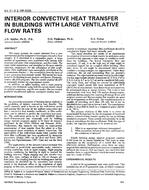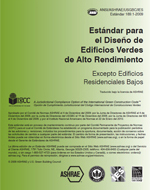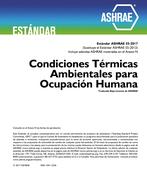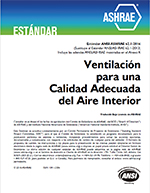Description
Presents the results obtained from a new experimental facility designed to investigate convective heat transfer. It is described in a companion paper. A large number of experiments were performed with varying inlet locations and sizes, inlet temperatures, and flow rates. The room outlet temperature was identified as the most suitable reference temperature for the calculation of film coefficients. Film coefficients were successfully correlated to the jet momentum number, J. The correlations form the basis of a new convective heat transfer model. This model has been tested in the Building Loads Analysis and System Thermodynamics (BLAST) program. The new model enabled BLAST to accurately predict the experimental results. In addition, an office building with a night purging strategy was simulated, using both the current model, based on natural convection, and the new model, based on natural convection, and the new model. The two models predicted significantly different ventilative cooling rates.
KEYWORDS: Heat flow, buildings, convection, testing, measuring, experiment, ventilation, USA, air change rate, computer programs, calculating, nighttime cooling, jets, natural ventilation.
Citation: Symposium, ASHRAE Transactions, vol.97, Pt. 1, New York 1991
Product Details
- Published:
- 1991
- Number of Pages:
- 11
- File Size:
- 1 file , 1.3 MB
- Product Code(s):
- D-18571




